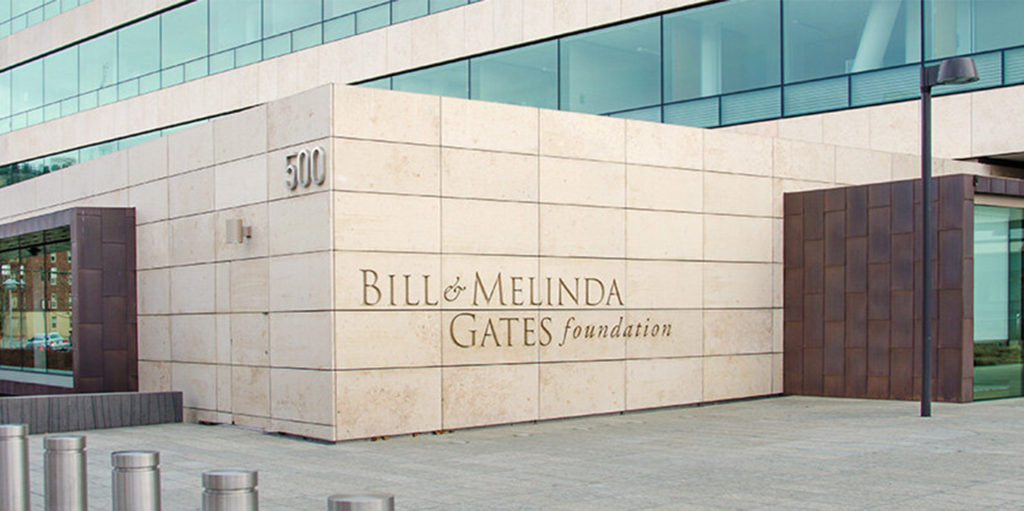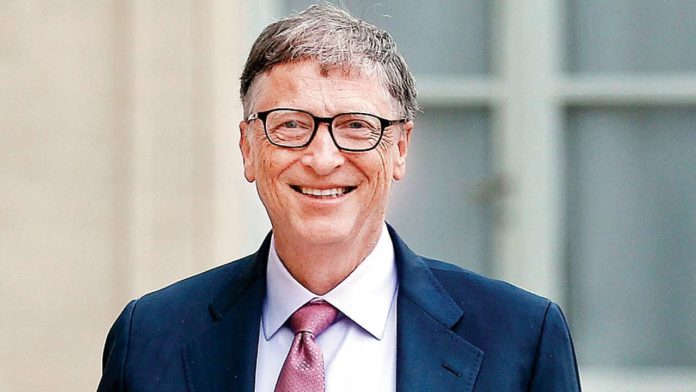Bill Gates, full name William Henry Gates III, is an American computer programmer and entrepreneur who co-founded Microsoft Corporation, the world’s biggest personal computer software firm. He was born on October 28, 1955, in Seattle, Washington. At the age of thirteen, Bill Gates created his initial software application. In high school, he co-founded Traf-O-Data. A firm that marketed traffic-counting systems to municipal governments, with a bunch of programmers. who digitized their school’s payroll system. In 1975 Gates teamed up with a friend from his hometown. Paul G. Allen created a software system for the earliest microcomputers. They started by converting BASIC, a well-liked programing language for big computers, to a version. With the success of this effort, Bill Gates dropped out of Harvard throughout his junior year and co-founded Microsoft with Allen.

Microsoft’s MS-DOS operating system was leased by International Business Machines Corporation. The world’s largest computer manufacturer and industry leader—for use in its first microcomputer. With the IBM PC, Gates’ influence in the infant microcomputer industry grew (personal computer). IBM established the technological standard for the PC market after its debut in 1981, and MS-DOS drove out rival operating systems. The independence of Microsoft had an impact on IBM’s relationship. Gates maneuvered the larger corporation into being reliant on him for critical software. Manufacturers of IBM-compatible PCs, sometimes known as clones, utilized Microsoft’s core software. By the early 1990s, he had established himself as the ultimate kingmaker in the PC business.
Gates built a significant paper fortune as Microsoft’s largest individual shareholder, The company’s success. In 1986, he became a paper billionaire, and within a decade, his net worth had risen into the tens of billions of dollars. Making him the world’s richest private individual, according to some estimates. Gates sought to keep out of the public spotlight, conducting civic and charitable concerns through one of his foundations.
He was only interested in software and the possibilities of information technology he had few other interests. Gates became a more visible figure with Microsoft’s strength. Particularly as it attracted the attention of the US Justice Department’s antitrust division. Rivals regarded him as driven by a desire to take pleasure in every electronic transaction that occurred throughout the world. His fans praised him for his great business sense and ravenous ambition to create new software to improve the functionality of computers and devices.
Gates’ rapid response to the unexpected public interest on the internet, demonstrated all qualities, Gates worked to focus on Microsoft. On developing consumer software and online business solutions. Creating a Windows CE operating system for non-computer devices. Home television digital assistants, the creation of Microsoft Network compete with the United States. Online and other providers. Access to the archive of Batman’s great portraits and other assets through Gates’ company Corbis.
Gates was best known for his humanitarian work at Microsoft. The Bill and Melinda Gates Foundation has settled him. 1994 his wife, Melinda funded international health programs and projects in the Pacific Northwest. In the late 1990s, the Gates Millennium Scholars program provided limited scholarship grants. In June 2006, Warren Buffett stated that the fund will continue to contribute. Over the next 20 years, fundamental assets might exceed $ 60 billion.

The foundation continues to focus on global health and development. On social and educational concerns in the United States, at the beginning of the 21st century. Gates resigned from Microsoft’s day-to-day management in June 2008. After a period of transition as board chairman. Bill Gates decided to devote more time to the Bill and Melinda Gates Foundation. He stepped down as chairman in February 2014. This time, he earned the Presidential Freedom Award. In 2019, Inside Bill’s Brain: Decoding Bill Gates was broadcast as a series of documents. Gates and his wife separated after two years.
It’s uncertain if Gates’ achievements will keep him among the American elite in the future. In comparison to John D. Rockefeller’s computer value, he may be visible as a businessman at the very least. “Success is a lousy teacher,” Gates writes in The Road Ahead, a 1995 book against the hazards of materialism. It deceives wise people into believing that they will not lose.


